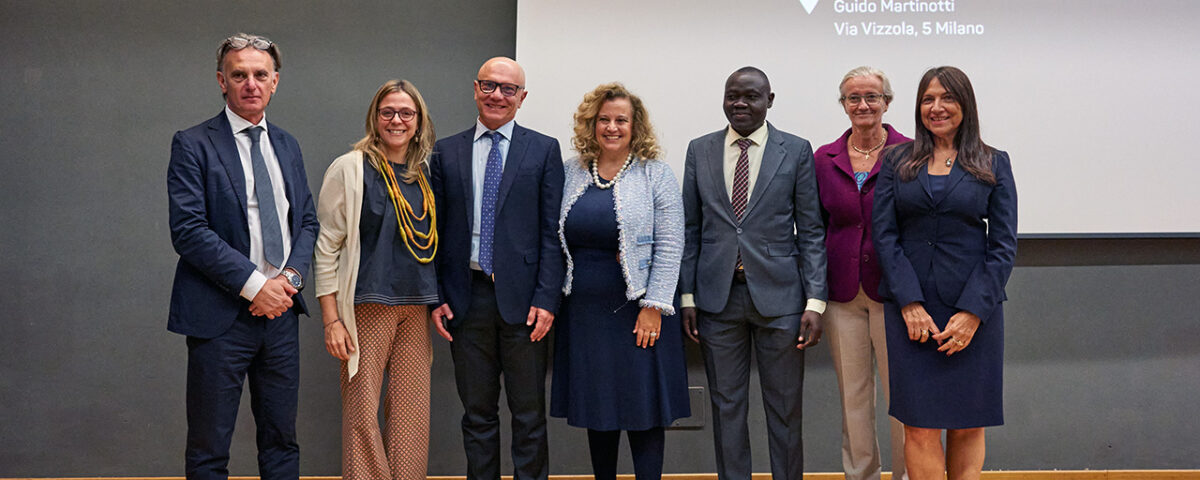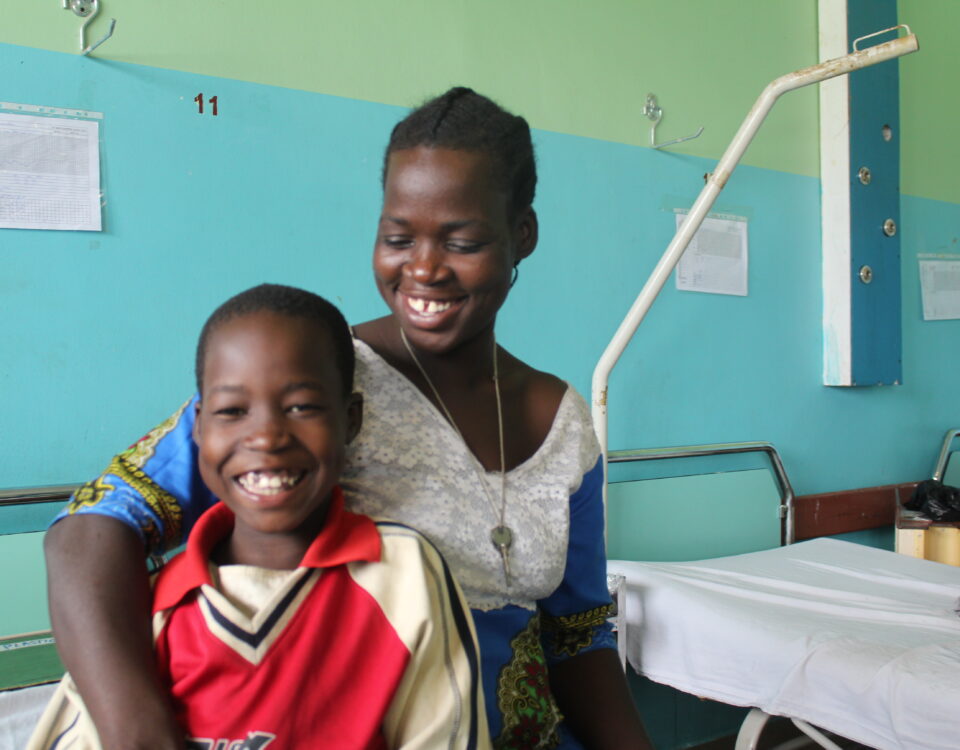The University of Milano-Bicocca, Italy has set up an outpost at Lacor Hospital to provide students and resident doctors with internship opportunities and a unique training experience. This center will serve as a reference point for one of the world’s most vulnerable populations, helping to shape the next generation of well-trained healthcare professionals.
Dubbed BRIDGE (Bicocca Research and Innovation for Development and Global hEalth), the five-year project is a model of international scientific and educational collaboration, designed to address global health challenges.
This new project of the University of Milano-Bicocca starts from Milan and extends to Gulu where Lacor Hospital is located. Lacor Hospital plays a crucial role in the region, providing medical care to more than 250,000 people each year, with over 30,000 hospitalizations, and serves as a key training center in various healthcare disciplines for local and international universities.
The headquarters of BRIDGE is located in the building of the Comboni Missionary Sisters, one of the historic buildings of Lacor Hospital. This building is being renovated to offer faculty, researchers, and students a well-equipped space for scientific study and research activities, as outlined in the five-year agreement signed between the two institutions.
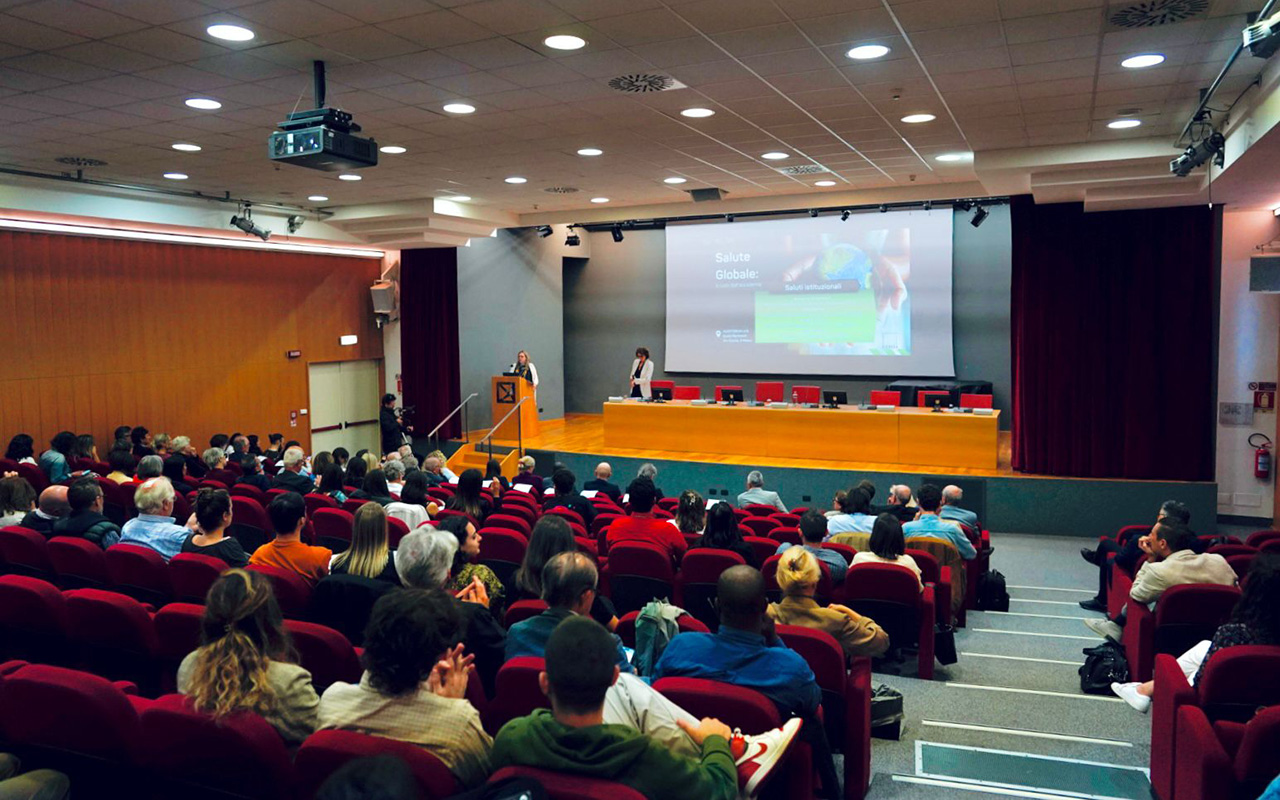 The new Milano-Bicocca outpost was launched on September 17 at the “Guido Martinotti” Auditorium, during the event “Global Health: the Role of Academia”, and is part of the Bicocca Global Health Center project, which involves all the university’s professionals in the development of innovative and sustainable solutions to address global health challenges through a multidisciplinary approach and to promote health and well-being in low- and middle-income countries.
The new Milano-Bicocca outpost was launched on September 17 at the “Guido Martinotti” Auditorium, during the event “Global Health: the Role of Academia”, and is part of the Bicocca Global Health Center project, which involves all the university’s professionals in the development of innovative and sustainable solutions to address global health challenges through a multidisciplinary approach and to promote health and well-being in low- and middle-income countries.
“We are proud to start this cooperation with Lacor Hospital,” explained the rector of the university, Giovanna Iannantuoni. “In a project aimed at training the next generation of healthcare professionals. A key aspect of this partnership is the ‘2 Pillars Project’, which provides internships for students and specialists of the university, offering them the opportunity to gain experience and immerse themselves in a complex clinical context, developing practical skills and essential human qualities.
This is the second international outpost of the University of Milan, after the MaRHE Center in the Maldives archipelago, a research and training center dedicated to marine biology studies.
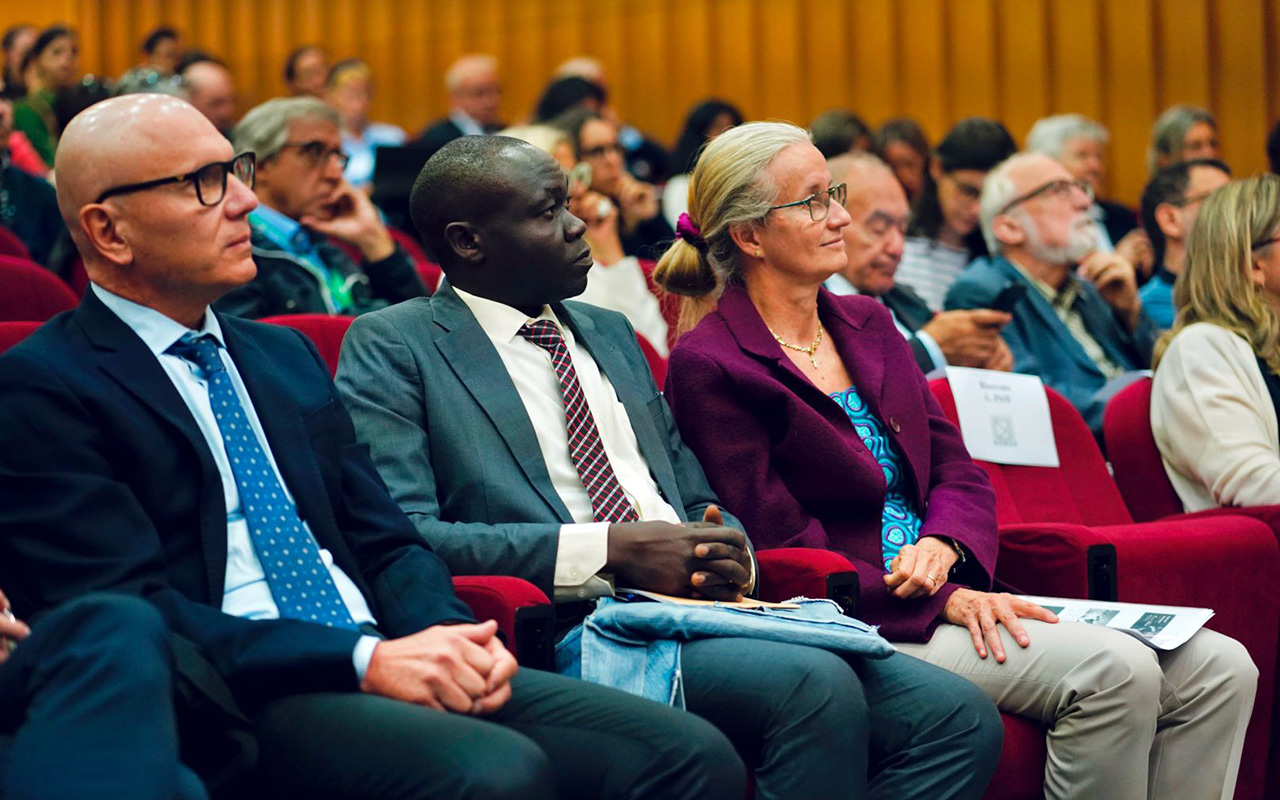 Speaking at the launch, Dr. Emmanuel Ochola, Lacor Hospital’s Scientific Director said; “We are very excited about the birth of the new outpost of the University of Milano-Bicocca. The collaboration with Milano-Bicocca will be centered on the patient, both in the hospital and in the territory, and we hope it can help us provide better services and quality training, in line with our mission.”
Speaking at the launch, Dr. Emmanuel Ochola, Lacor Hospital’s Scientific Director said; “We are very excited about the birth of the new outpost of the University of Milano-Bicocca. The collaboration with Milano-Bicocca will be centered on the patient, both in the hospital and in the territory, and we hope it can help us provide better services and quality training, in line with our mission.”
Dominique Corti, President of Corti Foundation, the Italian organisation that supports Lacor Hospital emphasised that; “The collaboration with Milano-Bicocca is born from mutual esteem and respect for the identity of Lacor and the needs of the population it serves. Whether it’s training, research, or capital development, every step taken together responds to the local ownership of priorities.”
For the past two years, Lacor Hospital has been hosting internships for fifth and sixth-year medical students, third-year nursing and midwifery students, and resident doctors from Milan-Bicocca. It is now expected that around 30 interns will be involved each year.
The establishment of BRIDGE (Bicocca Research and Innovation for Development and Global hEalth) – Uganda will provide a coordination center for all university activities in the area and in other Ugandan hospitals or neighbouring countries.
The center will provide workspace facilities as well as internet access for users. It will host research initiatives, including ongoing projects in pediatrics, gynecology, pathology, and infectious diseases. The scope will extend beyond clinical fields to include other scientific areas of the University, such as economics, psychology, and computer science.
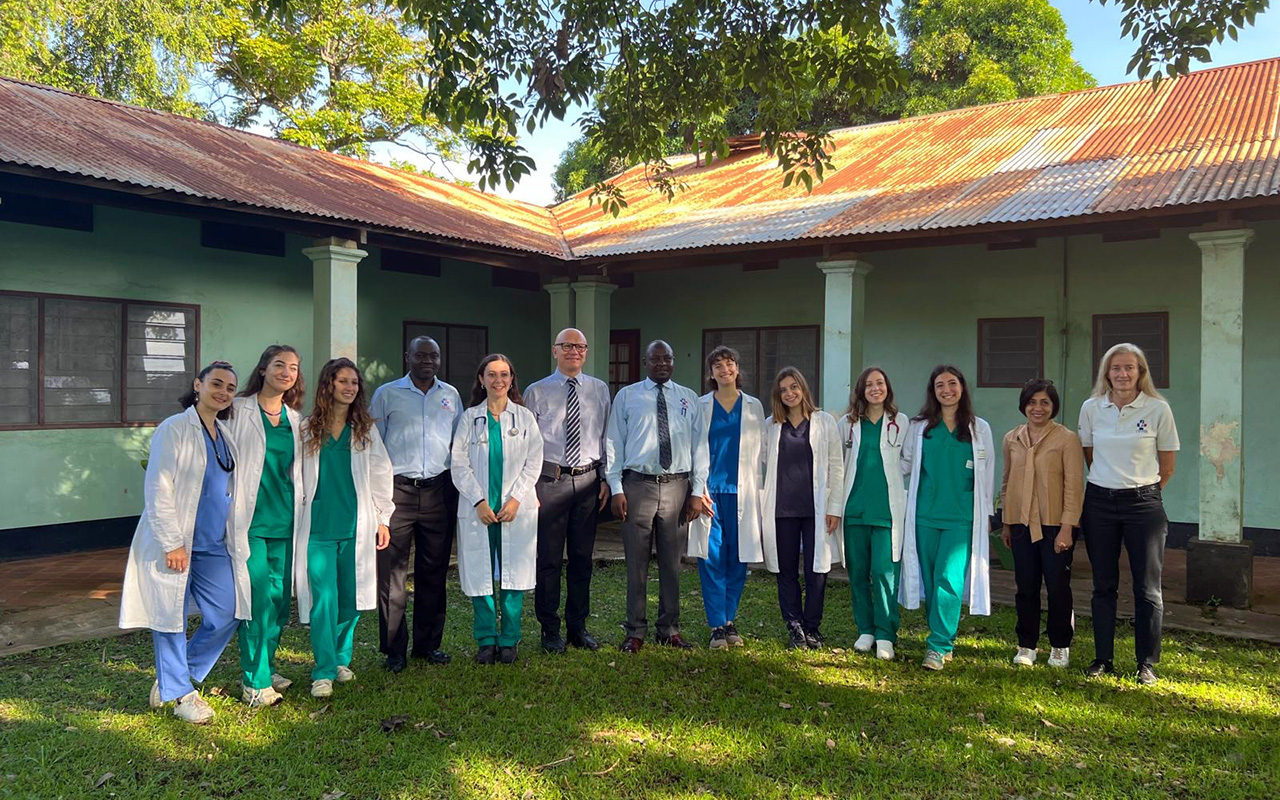
The Dean and students of Milano-Bicocca University pose for a photo with the hospital’s administration in front of the Comboni House, the new outpost

